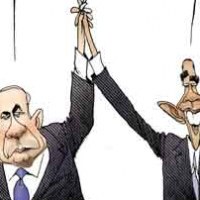Published: may 27, 2010; Arutz Sheva.
By Hillel Fendel,
Part 2 of a Two-Part Series. The first part of this series, a detailed account and list of aid Israel provides Gaza, can be seen here.
Israel’s Foreign Ministry (MFA) has prepared a three-pronged “counter-attack” to the flotilla of anti-Israel “humanitarian” ships scheduled to arrive in Gaza later this week. Among the elements of the Israeli response is a detailed explanation of the blockade Israel has imposed on Hamas, as outlined below.
Sarah Weiss Maudi, the Foreign Ministry’s expert on maritime and humanitarian law, was interviewed by the FMA website about the justification for the blockade on Gaza [watch the video below]. She explained that the reason why ships are not allowed into Gaza is Israel has imposed a maritime blockade on the coast of Gaza. Israel did this, Maudi said, “because Israel is currently in a state of armed conflict with the Hamas regime that controls Gaza.”
Hamas has repeatedly bombed civilian targets in Israel proper, she said, “with weapons that have been smuggled into Gaza by various routes, including the sea… Maritime blockades are a legitimate and recognized measure under international law, and may be implemented as part of an armed conflict at sea.”
She further said that “under international maritime law, when a maritime blockade is in effect, no vessels can enter the blockaded area. That includes both civilian vessels and enemy vessels. Any vessel that violates or attempts to violate the maritime blockade may be captured or even attacked.”
“Various naval manuals, including the naval manuals of the US and UK, recognize the maritime blockade as an effective naval measure that can be implemented in times of armed conflict,” Maudi continued. “And those manuals give various criteria for making a blockade valid, including the requirement to give due notice of the blockade. Israel, in accordance with the requirements of international law, has publicized the existence of the blockade currently in effect, and has published the exact coordinates of the blockade via the accepted international professional maritime channels.”
The interviewer then said, “Let’s talk about the transfer of supplies over land. Why can Israel decide what goes in and what can’t?”
Ms. Weiss Maudi responded, “In order to answer that question, we need to think about the events of the past few years. In 2005, Israel completed its disengagement plan and completely withdrew from the Gaza Strip, so that no Israeli military or civilian presence remained in the Gaza Strip. The disengagement plan ended Israel’s effective control of the Gaza Strip after almost 40 years of effective control… What currently exists is a state of armed conflict.”
She added that though Israel had hoped “that the disengagement would be used as a springboard for more positive relations with our neighbors in Gaza, in actuality, the opposite occurred. Instead of positive relations happening, the terrorist organization of Hamas seized power in Gaza and stepped up the rocket and mortar attacks on Israeli communities and towns in Israel proper adjacent to the Gaza Strip.”
“Therefore, in light of the Hamas-sponsored attacks on Israeli civilian targets, Israel undertook a number of measures against the Hamas regime. One of these measures is the imposition of economic sanctions against the Hamas regime in Gaza… Under international law, every state gets to decide what goes in and out of its borders. Also under international law, every state gets to decide whether it wants to forge economic relationships with any entity or state. Similarly, a country has a sovereign right to decide whether to impose economic sanctions on any enemy state or entity.
“I want to emphasize that this is not an act of collective punishment, but is rather a measure to put pressure on a regime that is attacking Israel’s citizens. Under international law Israel has a basic right to defend and protect its citizens.
“Such economic penalties have been imposed throughout modern history. There are many examples of bilateral sanctions: the U.S. against Syria and against Libya, for instance… In the international arena these are considered a legitimate and effective tool to exert pressure on terrorist or other regimes, such as that of the Hamas terrorist regime.”
Interviewer: “So how do we make sure that our actions are against the regime, but not against the citizens?”
Ms. Weiss Maudi: “Well, Israel has a humanitarian obligation to make sure that certain vital humanitarian interests are met and that supplies go in. But I want to emphasize that Israel is under no obligation to supply non-vital goods or goods that could give Hamas a military or economic advantage. That is why Israel limits, for example, the supply of concrete into the Gaza Strip. Concrete could be used to mold rockets. It could be used to build reinforced bunkers which are clearly for military purposes against Israel.”
She emphasizes that Israel supplies Gaza with large quantities of humanitarian supplies, including baby formula, meat, dairy products, and more. “And in the last year and a half it has supplied Gaza with over a million tons of goods. The Israel Supreme Court constantly reviews these supplies to make sure that Israel is in line with its requirements under both Israeli domestic law and international law to supply vital civilian goods that are needed. And indeed, it has confirmed that Israel has been meeting its obligations under international and domestic law.”
It should be noted that Egypt has also closed its border with Gaza.
Remarks by MFA spokesman Yigal Palmor comprise the third prong of Israel’s information response to the flotilla. Excerpts thereof:
“Ships forcing their way into Gaza will do nothing to aid the people there. Existing land crossings are more than capable of meeting their needs. International aid organizations and the private sector of Gaza ensure that all the necessary food, medicine and clothing are provided to the Strip via Israel… The land crossings remain the most efficient system to transfer goods to Gaza, and the flotilla organizers are well aware of this fact… Israel has invited the organizers of the flotilla to use the land crossings, in the same manner as all the reputable international organizations.
“However, they are less interested in bringing in aid than in promoting their radical agenda, playing into the hands of Hamas provocations. While they have wrapped themselves in a humanitarian cloak, they are engaging in political propaganda and not in pro-Palestinian aid. If the organizers were truly interesting in providing humanitarian aid – as opposed to engaging in publicity stunts – they would use the proper channels to ensure delivery of any supplies.” [watch the video below]
MFA legal expert Sarah Weiss Maudi on the legal aspects of Gaza aid
A maritime blockade has been imposed by Israel off the coast of Gaza because Israel is currently in a state of armed conflict with the Hamas regime that controls Gaza.
httpv://www.youtube.com/watch?v=e2W457Ot6qw
Transcript:
Interviewer: Today we are with Sarah Weiss Maudi, the Israel Foreign Ministry’s expert on maritime and humanitarian law. Sarah, can you explain to us please why Israel may stop ships from entering Gaza?
Ms. Weiss Maudi: Sure. The reason why ships cannot enter Gaza currently is because a maritime blockade is in effect off the coast of Gaza. When a maritime blockade is in effect no ships can enter the blockaded area. This includes both enemy vessels and civilian vessels. The reason why there is a naval blockade in effect off the coast of Gaza is because Israel is currently in a state of armed conflict with the Hamas regime that controls Gaza. The Hamas regime has bombarded Israeli communities in Israel, Israeli civilians in Israel, with weapons that are smuggled to Gaza by various routes, and one of these routes is the sea. Under international law a maritime blockade is a recognized and legitimate tool that can be used during an armed conflict. Various naval handbooks of western states, including the naval handbook of the United States and of the UK, recognize the blockade as a legitimate tool during maritime armed conflict.
Interviewer: So this is a regular maritime procedure?
Ms. Weiss Maudi: This is a regular, recognized maritime procedure. Under international law there are various criteria that need to be in place in order for the blockade to be valid. One of these, for example, is the grant of due notice. Israel has granted due notice and has publicized via the international professional maritime channels the exact coordinates of the maritime blockade.
Interviewer: So this blockade shouldn’t surprise anyone.
Ms. Weiss Maudi: Exactly. Due notice has already been granted.
Interviewer: Okay. Now what about Israel controlling overland supplies in and out of Gaza?
Ms. Weiss Maudi: I think to answer that question we have to look back at the recent history in the Gaza Strip.
In 2005, Israel implemented what is called its disengagement plan and under this disengagement plan Israel withdrew completely from the Gaza Strip – meaning that there is no longer any Israeli military or civilian presence in the Gaza Strip. This ended Israel’s effective control of the area after about 40 years of effective control.
Interviewer: Does this mean that Israel no longer occupies Gaza?
Ms. Weiss Maudi: Correct. Gaza is no longer under Israel’s effective control. What exists today is a state of armed conflict, as I said. Basically, what happened was that Israel had hoped that the disengagement plan would serve as a springboard towards more positive relations with its neighbors in Gaza. Unfortunately, the opposite happened and the Hamas regime, a terrorist regime, seized control of Gaza and stepped up its attacks on civilian targets in Israel proper, in communities and towns adjacent to the Gaza Strip.
So Israel, in response to these attacks on its civilians, undertook a number of measures. And one of these measures was the imposition of economic sanctions against the Hamas regime in Gaza.
Interviewer: Is this a common practice, economic sanctions?
Ms. Weiss Maudi: The imposition of economic sanctions on a terrorist or other regime is a very common practice that has been used many times in modern history. Some examples are the US implementation of economic sanctions on Syria or on Libya. Basically this is a tool to exert economic pressure on a problematic regime. This is not an act of collective punishment. Rather, again, this is a legitimate tool that is used under international law to exert pressure on a regime such as the Hamas regime, which is a terrorist regime.
Interviewer: So how does Israel make sure that while it is pressuring the regime, the citizens don’t get hurt?
Ms. Weiss Maudi: There are certain obligations under international humanitarian law that apply to armed conflict. Basically, Israel must ensure that vital humanitarian goods are supplied to the citizens of the Gaza Strip. Israel supplies vital humanitarian goods on a daily basis – these include baby formula, meat, dairy products etc. and in the last year and a half for example, over a million tons of goods have been transferred to the Gaza Strip.
Interviewer: So everything is transferred?
Ms. Weiss Maudi: No, not everything is transferred. Under international law, a state that is imposing economic sanctions does not need to transfer non-vital goods. This means that goods that would give Hamas a military or economic advantage are not transferred. This is why, for example, Israel limits the transfer of concrete to Hamas. Concrete could be used to cast rockets or it can be used to build reinforced bunkers, and certainly those things would give Hamas a military advantage.
Interviewer: So how are we sure that Israel is implementing these economic sanctions in a way that doesn’t hurt the civilians?
Mr. Weiss Maudi: The Israel Supreme Court constantly reviews the transfer of humanitarian goods to Gaza and makes sure that Israel is meeting its obligations under international law. There have been several Supreme Court cases where they have checked and made sure that Israel meets its obligations both under Israeli domestic law and under international law.
Interviewer: Okay. Thank you very much.
Ms. Weiss Maudi: You’re welcome. Bye.
Source: Israel Ministry of Foreign Affairs.
MFA Spokesman on Gaza flotilla
Ships forcing their way into Gaza will do nothing to aid the people there. Existing land crossings are more than capable of meeting their needs.
httpv://www.youtube.com/watch?v=5wlWcNXzstI
Text:
Ships forcing their way into Gaza will do nothing to aid the people there. Existing land crossings are more than capable of meeting their needs. International aid organizations and the private sector of Gaza ensure that all the necessary food, medicine and clothing are provided to the Strip via Israel.
In a typical week, 15,000 tons of supplies enter Gaza. Truckloads of meat, poultry, fish, dairy products, fruits, vegetables, milk powder, baby food, wheat and other staples arrive in Gaza on a daily basis. Building materials are also shipped in, when monitored by International organization so as not to be commandeered by Hamas for the fortification of bunkers.
Since the ceasefire in January 2009, well over a million tons of humanitarian supplies entered Gaza from Israel – that is almost a ton of aid for each man, woman and child in the Strip.
The land crossings remain the most efficient system to transfer goods to Gaza, and the flotilla organizers are well aware of this fact. The organizers also know that since December 2008, their ships have been denied permission to land.
Israel has invited the organizers of the flotilla to use the land crossings, in the same manner as all the reputable international organizations.
However, they are less interested in bringing in aid than in promoting their radical agenda, playing into the hands of Hamas provocations. While they have wrapped themselves in a humanitarian cloak, they are engaging in political propaganda and not in pro-Palestinian aid.
If the organizers were truly interesting in providing humanitarian aid – as opposed to engaging in publicity stunts – they would use the proper channels to ensure delivery of any supplies.
Source: Israel Ministry of Foreign Affairs.



 RSS
RSS











MFA legal expert on the legal aspects of the Gaza Blockade …: According to USAID report, 81% of households …… … http://bit.ly/asAzRv
[…] One of a Two-Part Series: Part Two explains why Israel’s blockade on Gaza is internationally justified, given the state of armed […]
[…] coast, the Israeli navy holds control between Gaza and international waters. Supported by legal precedents of permitted actions against a hostile government, it has prohibited ships from entering Gaza or […]
MFA legal expert on the legal aspects of the Gaza Blockade #israel #gaza #idf #hamas http://j.mp/dDtW4P
RT @CrethiPlethi: MFA legal expert on the legal aspects of the Gaza Blockade #israel #gaza #idf #hamas http://j.mp/dDtW4P
[…] This post was mentioned on Twitter by Elisabeth and Crethi Plethi, Inside USAID. Inside USAID said: MFA legal expert on the legal aspects of the Gaza Blockade …: According to USAID report, 81% of households …… … http://bit.ly/asAzRv […]
[…] the terrorist Hamas organization running the Gaza strip. The blockade was originally implemented alongside the Egyptian government. This was clearly an attempt to draw Israel into some sort of action against this group of ships, […]
It’s a nice interview, but Ms. Weiss Maudi is not a well known worldwide respectable international law expert. Non of pro-Israeli’s speakers explains the legal base of our Navy:
Helsinki Principles on the Law of Maritime Neutrality
“5.1.2(3) Merchant ships flying the flag of a neutral State may be attacked if they are believed on reasonable grounds to be carrying contraband or breaching a blockade, and after prior warning they intentionally and clearly refuse to stop, or intentionally and clearly resist visit, search, capture or diversion.
5.1.2(4) Merchant ships flying the flag of a neutral State may be attacked if they
(a) engage in belligerent acts on behalf of the enemy;
(c) are incorporated into or assist the enemy’s intelligence system;
(e) otherwise make an effective contribution to the enemy’s military action, e.g., by carrying military materials, and it is not feasible for the attacking forces to first place passengers and crew in a place of safety. Unless circumstances do not permit, they are to be given a warning, so that they can re-route, off-load, or take other precautions.
5.2.1 Visit and search
As an exception to Principle 5.1.2. paragraph 1 and in accordance with Principle 1.3 (2nd sentence), belligerent warships have a right to visit and search vis-à-vis neutral commercial ships in order to ascertain the character and destination of their cargo. If a ship tries to evade this control or offers resistance, measures of coercion necessary to exercise this right are permissible. This includes the right to divert a ship where visit and search at the place where the ship is encountered are not practical.
5.2.10 Blockade
Blockade, i.e. the interdiction of all or certain maritime traffic coming from or going to a port or coast of a belligerent, is a legitimate method of naval warfare. In order to be valid, the blockade must be declared, notified to belligerent and neutral States, effective and applied impartially to ships of all States. A blockade may not bar access to neutral ports or coasts. Neutral vessels believed on reasonable and probable grounds to be breaching a blockade may be stopped and captured. If they, after prior warning, clearly resist capture, they may be attacked”
[…] to break a blockade. Is the blockade of Gaza itself legal under "International Law?" Israel certainly says its blockade is legal however the UN has repeatedly asked Israel to lift the blockade. Originally Posted by Tashah […]
Is Israel truly in an IAC (International Armed Conflict)? As far as I know Israel does everything to prevent the conflict to be seen as an IAC.
For a more neutral judgement of the legality of the conflict, I rather point to:
http://opiniojuris.org/2010/06/02/why-is-israels-blockade-of-gaza-legal/
@Karn
Thank you for your comment.
Very interesting. Maybe I can use it in an article. I also believe that Israel is judged more severe, in every aspect, than other countries in similar situations.